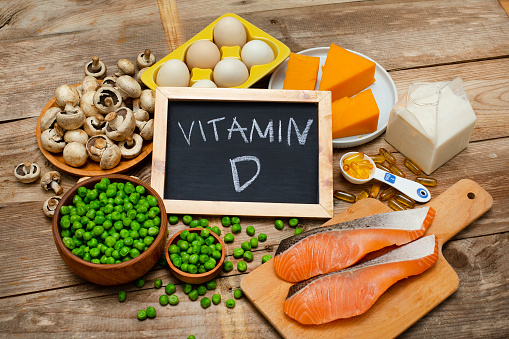The Essential Importance of Vitamin D

Sarah Davis
@sarah_davis
The Importance of Vitamin D for Your Health: Are You Getting Enough?
Vitamin D is an essential nutrient that plays a vital role in many aspects of our health. It is sometimes referred to as the "sunshine vitamin" because our bodies can produce it when our skin is exposed to sunlight. However, many people may not be getting enough of this important nutrient, which can lead to a range of health problems. In this blog post, we'll explore the importance of vitamin D and how you can ensure you're getting enough of it.
What is Vitamin D?
Vitamin D is a fat-soluble vitamin that plays a crucial role in maintaining healthy bones and teeth, as well as supporting immune function, cell growth, and neuromuscular function. It helps the body absorb calcium and phosphorus, which are essential for bone health. There are two main types of vitamin D: vitamin D2 (ergocalciferol) and vitamin D3 (cholecalciferol). Vitamin D2 is found in some plants and mushrooms, while vitamin D3 is produced by the body when the skin is exposed to sunlight.
Why is Vitamin D Important?
Vitamin D is important for many aspects of our health, including:
Bone Health: Vitamin D helps the body absorb calcium and phosphorus, which are essential for strong bones and teeth.
Immune Function: Vitamin D plays a role in supporting the immune system, helping to fight off infections and diseases.
Neuromuscular Function: Vitamin D helps support neuromuscular function, which is important for muscle strength and movement.
Cell Growth: Vitamin D plays a role in regulating cell growth and differentiation, which is important for maintaining healthy tissues and organs.
How Can You Get Enough Vitamin D?
The best way to get vitamin D is through exposure to sunlight. When the skin is exposed to sunlight, it produces vitamin D3. However, many people may not be getting enough vitamin D through sunlight alone. This can be due to a range of factors, including:
Living in areas with little sunlight, especially during the winter months
Spending most of your time indoors
Having darker skin, which can make it harder for the skin to produce vitamin D
Using sunscreen, which can block the skin's ability to produce vitamin D
In addition to sunlight, you can also get vitamin D from certain foods, such as:
Fatty fish, such as salmon, tuna, and mackerel
Egg yolks
Fortified dairy products, such as milk and yogurt
Fortified cereals and orange juice
If you're concerned about getting enough vitamin D, you may want to consider taking a vitamin D supplement. The recommended daily amount of vitamin D varies depending on your age and other factors, so it's important to talk to your healthcare provider to determine what's right for you.
Conclusion
Vitamin D is an essential nutrient that plays a crucial role in many aspects of our health. While sunlight is the best source of vitamin D, many people may not be getting enough of this important nutrient. Eating a diet rich in vitamin D and taking a supplement can help ensure you're getting enough of this important nutrient. If you're concerned about your vitamin D levels, be sure to talk to your healthcare provider to determine what's right for you.

"Get your daily dose of sunshine vitamin - Vitamin D, and ensure strong bones, healthy immune function, and overall wellbeing." Jessica Cain





